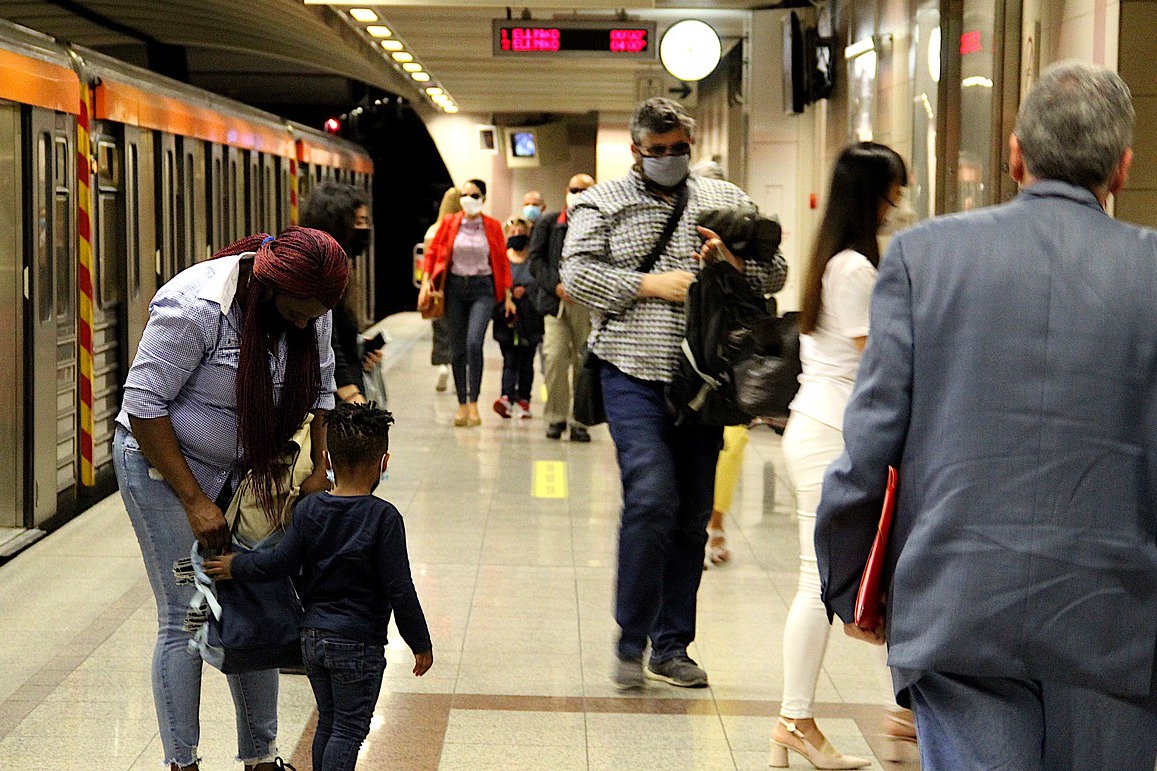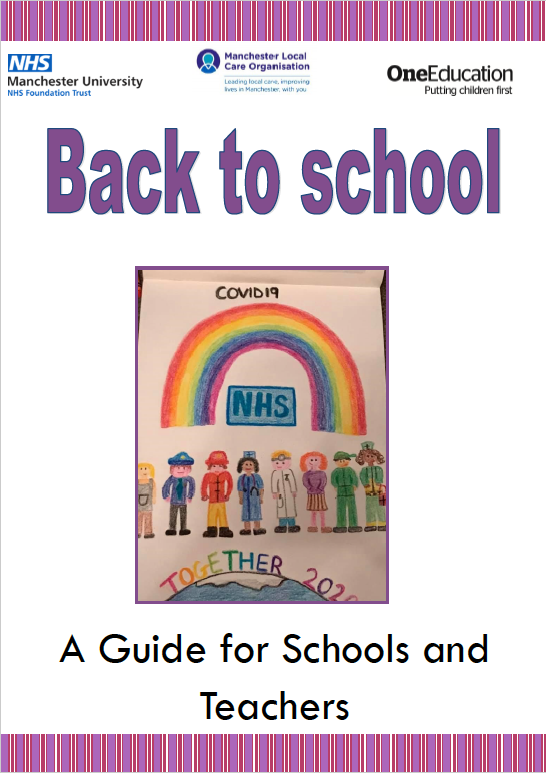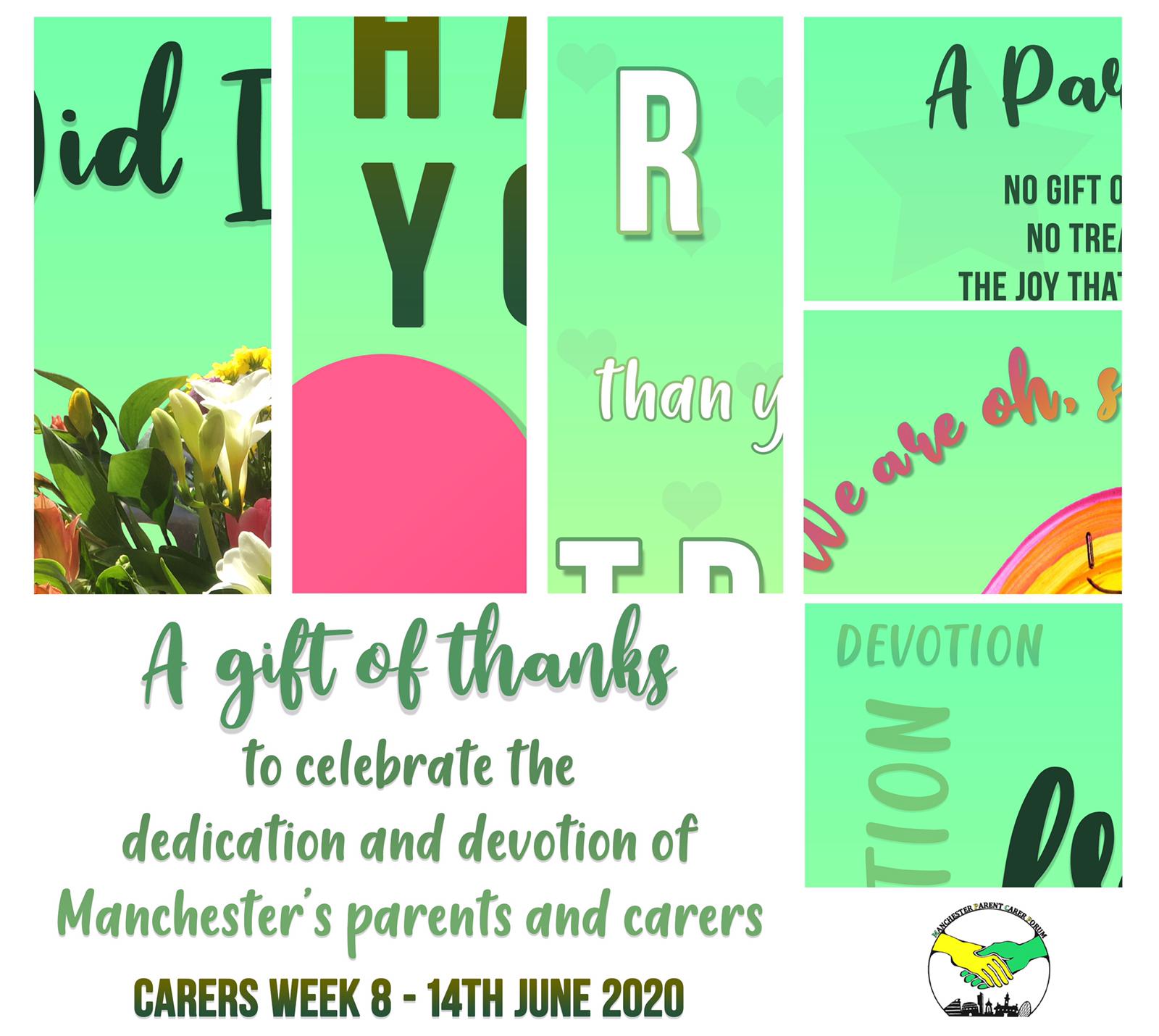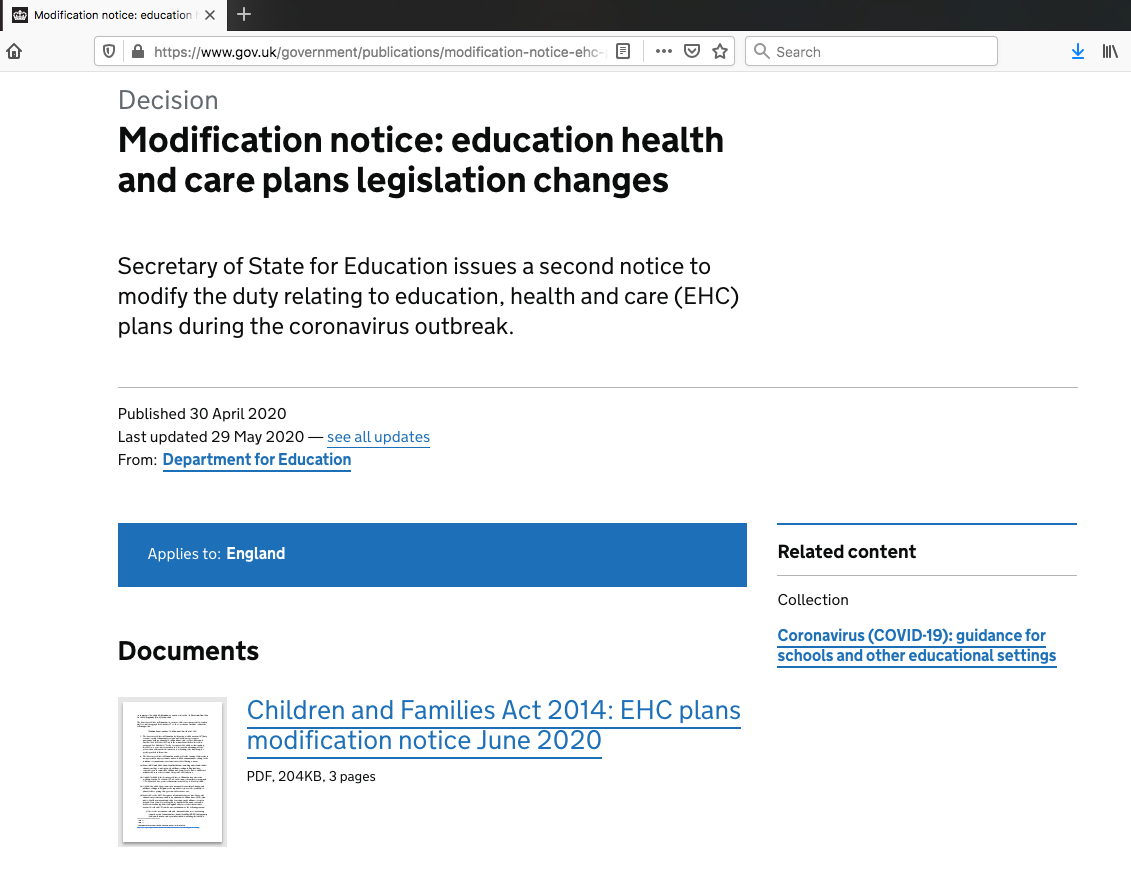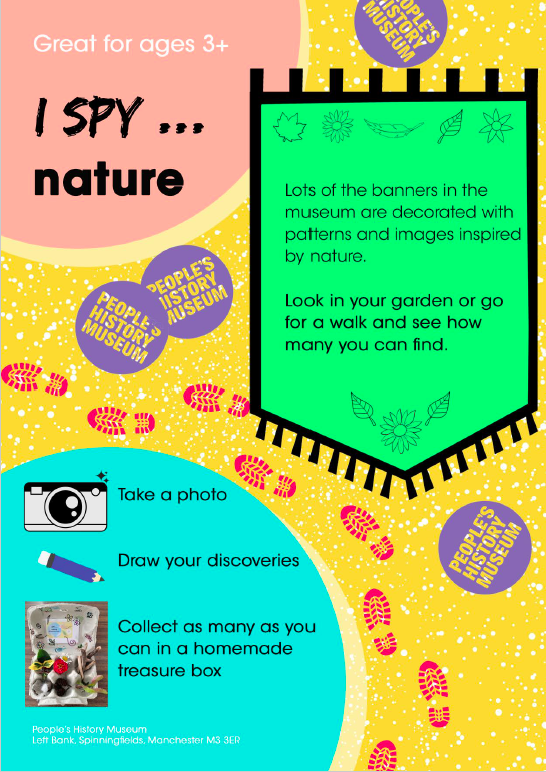Coronavirus disease (COVID-19) is an infectious disease caused by a newly discovered coronavirus.
Most people infected with the COVID-19 virus will experience mild to moderate respiratory illness and recover without requiring special treatment. Older people, and those with underlying medical problems like cardiovascular disease, diabetes, chronic respiratory disease, and cancer are more likely to develop serious illness.
– Source: World Health Organisation
The NHS lists the symptoms as:
- a high temperature – this means you feel hot to touch on your chest or back (you do not need to measure your temperature)
- a new, continuous cough – this means coughing a lot for more than an hour, or 3 or more coughing episodes in 24 hours (if you usually have a cough, it may be worse than usual)
They also offer a symptom checker service: https://111.nhs.uk/covid-19/
You can access the service via NHS 111 Online: https://111.nhs.uk/covid-19/
Gov.uk has a dedicated coronavirus website: https://www.gov.uk/coronavirus
This includes information about employment & financial support; school closures, education and childcare; travel; how coronavirus is affecting public services; and many other things.
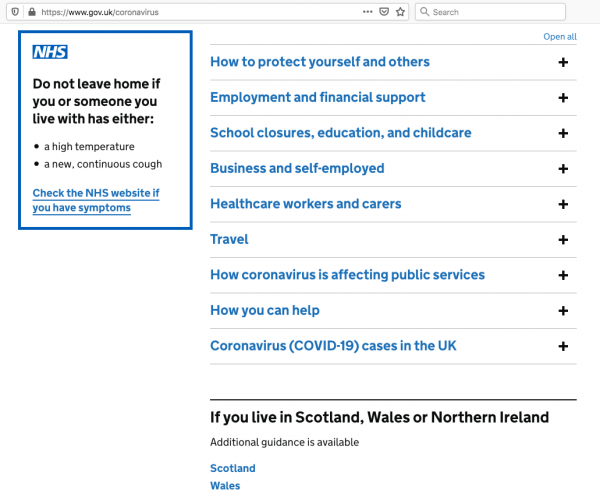
This screenshot was taken off https://www.gov.uk/coronavirus on 10 April 2020.
This includes information about support for Manchester’s most vulnerable people, schools & adult education, benefits & money, leisure activities, public events & gatherings, and many other things. Manchester’s Community Response Hub is open Monday to Saturday, 8:30am-5:30pm. If you need support with food, medicines or fuel bills, you can contact their freephone number 0800 234 6123 or email address: COVIDSupport@manchester.gov.uk
Manchester’s Local Offer also offers advice and information that are more relevant to families with Special Educational Needs and/or Disabilities (SEND):
- https://secure.manchester.gov.uk/info/500361/coronavirus/7945/coronavirus_-_local_offer_advice_and_information
- https://hsm.manchester.gov.uk/kb5/manchester/directory/advice.page?id=F3WlTVb4jZ0
These include information about the IAS Manchester Helpline, Short Breaks advice for parents & carers, school closures, as well as things to do at home.
This is the official advice from government:
Stay at home
- Only go outside for food, health reasons or work (but only if you cannot work from home)
- If you go out, stay 2 metres (6ft) away from other people at all times
- Wash your hands as soon as you get home
Do not meet others, even friends or family. You can spread the virus even if you don’t have symptoms.
Read more about what you can and cannot do.
The link above contains answers to questions such as:
- When am I allowed to leave the house?
- Can I go to the dentist, my GP or another medical appointment?
- Can I walk my dog / look after my horse?
- Should I stay at home or go to work?
- I’m not a critical worker and I can’t work from home. What should I do?
- How can I find out if my work is essential or not?
- Can I see my friends?
- Can I visit elderly relatives?
- Can I go out to help a vulnerable person?
- My boss is forcing me to go to work but I’m scared of coronavirus. What should I do?
- I can’t go to work because I need to look after my child, but my boss is threatening to sack me if I don’t. What should I do?
- Can I move house?
- Can I go to the park?
- Can I drive to a national park or other green space to walk?
- Can I exercise more than once a day if I need to due to a significant health condition?
- What will happen to me if I break the rules?
The situation with COVID-19 (Coronavirus) is rapidly changing. We are following government advice on how to stay healthy and safe during this time. We have gathered a list of resources and guidance about coronavirus to share with parent carers, children & young people and education, health and social care practitioners. This page will be kept under review and new resources added to the categories as they become available. We hope that you find this information useful.
You can access this resource on CDC’s website: https://councilfordisabledchildren.org.uk/help-resources/resources/covid-19-support-and-guidance
With so much out there about Covid-19 (coronavirus) and confusion about the virus and its impact on families with disabled children, we wanted to make sure we offered you somewhere to go where all the most important information you need is in the one place.
We will keep adding to this pages as and when the situation changes, so please keep checking back for additional information and resources that could be useful to you and your family.
You can access this resource on Contact’s website: https://contact.org.uk/advice-and-support/coronavirus-information-for-families-with-disabled-children/
Related News and Blog Articles
Q&A from the June Virtual Local Offer Drop-in
We asked participating organisations/teams in last month's Virtual SEND Local Offer Drop-in to collate questions that parents asked them so we can share the information to more parents & carers.Below are the questions that parents asked
“Reasonable Endeavours” EHCP Law Change to End July 31
Last Monday, we learned of the unfortunate news that the change in the law for Education Health and Care Plans (EHCP) in England has been extended by the Department for Education (DfE) until end of 31st
TfGM Travel Guidance and Face Covering Exemption Card
We recently shared with you guidance from Transport for Greater Manchester (TfGM) about the rules on wearing face covering on public transport across Greater Manchester (and throughout the country), including information about exemptions. We are pleased
About Face Coverings in Greater Manchester Public Transportation
As you might know, face coverings are now mandatory (starting on Monday last week, June 15th) on public transport (with exemptions). Even as we are aware of the exemptions - e.g., children under the age of
Back to School Resources for Autistic Students, Their Parents and Schools/Colleges
At the start of June, Manchester produced a "back to school" pack that staff from Educational Psychology, Speech and Language Therapy and the Clinical Service for Children with Disabilities have put together as a multi-agency project.
Make a Fellow SEND Parent/Carer Smile This Carers Week
It's Carers Week and, to celebrate, we created a (virtual) present to all the wonderful parents and carers of children and young people with Special Educational Needs and/or Disabilities (SEND) in Manchester. Through the form below,
Extension of Temporary Changes to EHCP Legislation
We previously shared with you information about the temporary changes to the law regarding Education Health and Care (EHC) plans during the Coronavirus pandemic, which was followed by a factsheet from Information, Advice and Support Manchester
Q&A from the May Virtual Local Offer Drop-in
We asked participating organisations/teams in last month's Virtual SEND Local Offer Drop-in to collate questions that parents asked them so we can share the information to more parents & carers. Below are the questions that
“I Spy … Nature” Activity for Home
People's History Museum (PHM) recently approached us with their amazing idea for a home activity with the kids: "I Spy … Nature" Patterns in nature











